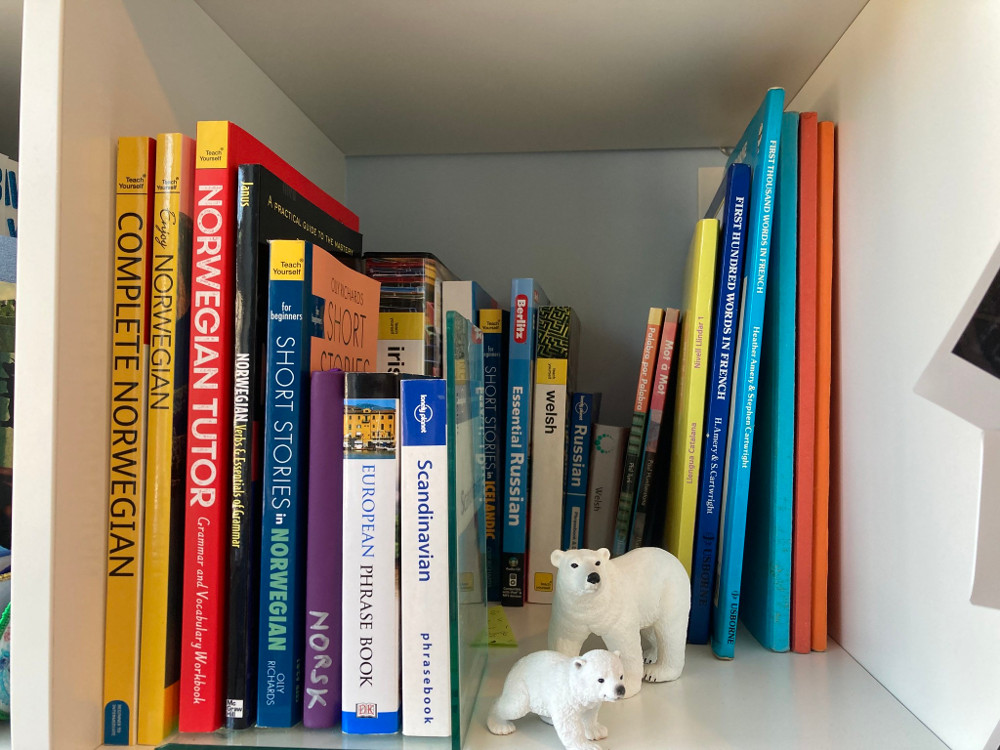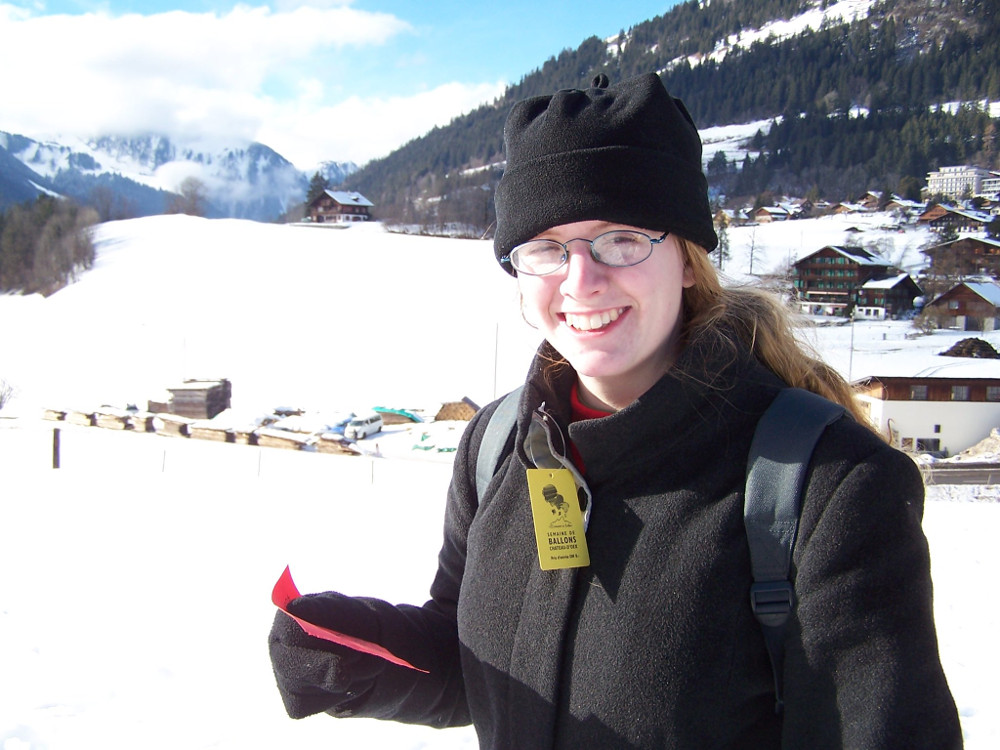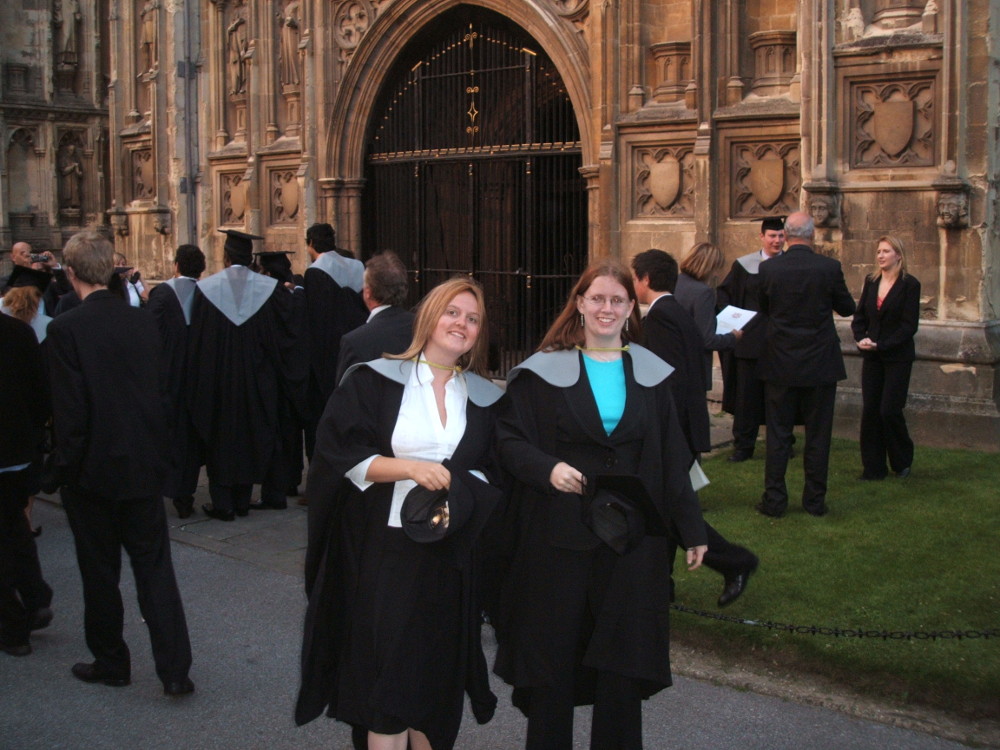In honour of it being A Level results day tomorrow, let’s talk about degree possibilities. Specifically – what can you do with a language degree?
Considering languages are so important when you’re travelling around the world, and considering the state of language teaching in the UK, I sometimes feel like one of my unique selling points as a travel blogger is that I have an actual academic background in learning languages. I was a student of French and Spanish and I got to spend a year living in western Switzerland at a French language school where I had the privilege of learning the finer points of grammar at eight o’clock on Monday mornings. I talk about it quite a bit and now I want to talk about what can you do with a language degree.

Why pick a language degree? Well, from a practicality point of view, they’re dropping in popularity all the time, which means they’re less competitive to get places on than some other courses. Ugly fact but true. Also, from my experience, languages are taught in a way that just felt like school but without the dress code. Very few lectures and seminars just felt like lessons. I never even had “lecturers” or “professors”, I just had “teachers”. Apart from my year abroad (when their in-house course books were just handed out to us on the first day), I didn’t even have textbooks – my teachers considered languages a dynamic and ever-evolving subject and so our resources were photocopied booklets and sheets and magazine cuttings and exercises that were handed out as and when. I hear about $600 textbooks for a single module for a single semester and I shudder. I do have a handful of French novels from literature modules but they’re a lot cheaper than textbooks, and when I say “a handful”, I mean four. None in Spanish, for some reason, just French. Just pick them up from the uni bookshop exactly the same as you’d buy any novel over here and for much the same price. All in all, I think a language degree is less of a shock to the system moving from school to university. It’s also very female-dominated – in my entire year group, or cohort as they call it these days, I can only think of two boys off the top of my head.

Second, I think they’re a great thing for personal development. Nothing is going to quite drill into your soul that you’re a small international citizen in a big wide world like spending four years studying the language and culture of another country. You’re almost certainly not going to graduate as the sort of person who refers to foreign names or foods as “weird” or “funny”. You won’t be criticising anyone else’s language skills either – that’s something that makes me angry, someone who can’t even say hello in French nitpicking someone else’s English when it’s their third or fourth language. A language degree will knock that habit right out of you.
Third, year abroad! If you want to travel but a gap year is beyond your means, language degrees have a year studying or working abroad built in. They’re not compulsory but you have to have a pretty good reason not to go – for example, mature students who have lives and kids and jobs and mortgages usually skip it. Don’t write it off automatically for financial reasons either. There are programmes and resources, your uni will have handled this sort of thing before, talk to them. I know it was the olden days but I got a grant from the Swiss government to make up for the fact that Switzerland wasn’t in the Erasmus programme (turned out to be a bit of a pain: it was a Swiss cheque that had to be paid into a Swiss account, which I didn’t have). Of course Brexit has caused massive changes in years abroad so you’ll need to look into the details before you commit to anything but it’s definitely worth looking into.

You have three choices, really. Go to a university (usually partnered with your own). I was at a specialist language school attached to UniNE but sometimes you’ll be mixed in with the rest of the uni, sometimes you’ll be studying a non-language subject in your chosen language and sometimes you’ll be there specifically for the language course. You can also work or get a job as a language assistant in a school. Your uni will know all about that but as I didn’t take either of those options, I don’t. It’s not really about what you do, it’s about spending a year immersed in your target language, so you may have a project or essay or mini-dissertation to do while you’re working to demonstrate your new-found language skills to your home uni. And of course, you’re not studying or working 24/7 so you get a part-time gap year all built into your course! I had lessons Monday to Thursday, with long lunch breaks Tuesdays & Thursdays and Monday afternoon off and then I had evenings and three-day weekends to explore my adopted homeland. In fact, looking at the current timetable on the website, I wonder if I had Tuesday afternoons and Thursday mornings off too. Surely we weren’t doing three lots of language lab a week?
And fourth, and most importantly, your future prospects…
Careers advisors are notoriously unimaginative. Did anyone get careers advice at school that actually led to where they are today? My music teacher could only suggest, over and over again, that music students join the army bands. PE teachers suggest becoming a PE teacher. And language teachers?
Well, I found them vague with little more concrete than “languages are so useful!” and “you can do anything if you have a language degree!”. You know what I felt when I walked out of Canterbury Cathedral in July 2007 with a thick piece of card in an A4 envelope and a very heavy & precarious square hat that was not as aerodynamic as the movies make it look? I felt like I had zero actual skills. I can read a pretentious and highly metaphorical book about a man on a train but what else can I do? I know that an early French king was called Charles the Bald. So what? What can I offer to a job that a native French applicant can’t? Probably not even the English skills, given that everyone in France, certainly under 60, speaks fluent English. Definitely not the French skills.

So, my future prospects. Number one, I could be a French or Spanish teacher. Well, that wasn’t going to happen. Even when it was fresh in my mind, back in 2007, I knew I didn’t speak either well enough to teach it. I’d also need another year at uni to get my PGCE and besides, my nature and personality simply aren’t suited to teaching. After fourteen years as a Guide leader I sometimes wonder if it’s something I could do now but I’m still extremely inclined to say no.
Number two, my grandad was always adamant I should work for the EU and get to fly around Europe for work. See my original point. What did I have to offer the EU? See above – very little except fluent English, which is not in short supply, and less-than-fluent French. If he hadn’t died in 2013, I think my grandad would have voted remain, incidentally. You can’t be that enthusiastic about it for your granddaughter and then vote to leave it, even if you do read the M*il every day.
So number three, the only obvious option left to you: become a translator. I did give that a go. Self-employment earned me £3 and it became clear I needed to find a job with a boss and a salary. Besides, translation is hard! If you’re not setting up for self-employment in the middle of nowhere, you’re most likely to get things like manuals for washing machines, which is boring and also involves the sort of technological terminology that doesn’t pop up in uni modules about literature or culture. Or maybe you strike gold and get to translate Harry Potter! Oh god, imagine it. One thing that got hammered into me was
Translate all and only the meaning
What does that mean? It means language isn’t a substitution cypher. You can’t just swap the English word for the corresponding French or Spanish word. There are idioms, which are phrases like “it’s raining cats and dogs”. You can’t translate that into French as il pleut des chats et des chiens, it just doesn’t make sense. Do you explain it as il pleut beaucoup, it’s raining a lot, or do you take a French idiom with roughly the same meaning, like il pleut des cordes or even comme vache qui pisse (ropes or… well, a cow)? Now try doing that to magical words. Do you stick with “Hogwarts”, “muggle”, “quidditch” & “Slytherin” or do you invent a load of words that work in your target language but still sound magical in the original Harry Potter style? Do you adjust the names of beloved characters to match your target language?

There are puns. There’s alliteration. There’s an entire raft of stylistic choices. How do you translate those? To stick with the Harry Potter examples, did you know French Voldemort’s middle name is Elvis? He became Tom Elvis Jedusor so the anagram Je suis Voldemort still worked. What about Hagrid’s accent? Do you pick a French accent from a roughly analogous region? Heaven help you if there’s a song or poem, especially if it rhymes. Translation is an art and it’s incredibly difficult and incredibly under-appreciated.
And that’s why I’d never try a career in translation.
The other side of translation – the dark side – is interpretation, which is when it’s spoken rather than written. I did the interpretation module for both my languages rather than face the dissertation – or maybe even two dissertations – and interpretation is not for me either. All the pitfalls of translation but you’re doing it out loud, right there and then with no dictionaries or Google. Simultaneous interpretation is a particularly horrifying variant, where you have to listen and interpret at the same time, rather than wait until whoever you’re interpreting for has finished talking.
So instead you become an office junior in an export company in your own home town, answer the phone to Tunisian and Senegalese customers (Bonjour… un moment, s’il vous plaît is all you actually need, before you transfer the call to the logistics manager who speaks French natively) and start a travel blog on the side in which you occasionally write about the ups and downs of being a language student. Because the truth is that there’s not all that much you can really do with a language degree, apart from wave a piece of card that demonstrates you graduated from a university.
I really enjoyed my linguistics modules and I left uni full of plans to revolutionise language learning, perhaps via private tutoring, not starting with bonjour, ça va, comment t’appeles-tu? but with an understanding of how the language works. This method, it turns out, is useless when you’re learning by yourself from books and apps, like my Norwegian and Russian attempts and to be honest, for all my enthusiasm, I never figured out how to use it on teaching French either.
But I’ll tell you one thing a language degree is really good for. It’s really good for getting angry with people who say “if you’re going to [Insert Country Here], just learn the language before you go, that’s easiest”. Just learn the language. We’re not Hoshi from Enterprise or Sikozu from Farscape. It’s a long & difficult process. Especially when it’s a language with a whole new alphabet or whole new writing system. I learned French for eleven solid years. I can check into a hotel in French but that’s as far as my abilities really go, after eleven years of actively learning. By all means, learn please, thank you, hello and how to recognise do you want a bag? for your supermarket trips but as far as “just learn the language” goes, it just doesn’t work like that. It’s also good for cluttering up your shelves with collections of foreign-language novels, phrasebooks, grammar references and dictionaries that you probably didn’t open at the time and definitely won’t now.
So what can you do with a language degree? Ultimately, not a lot except bask in the glow of not being Amanda Holden (that was topical when I first wrote this. Remember when she “didn’t know” the difference between French and Dutch at Eurovision? Then this post had to be moved for actual real-time local/travel content). Revel in recognising languages, even if you don’t speak them, and being a world citizen and being a better person than a big subset of the monolinguists. Then go to Paris and order a croissant to eat while looking for a job that requires no specialised skills.
One thought on “What can you do with a language degree?”